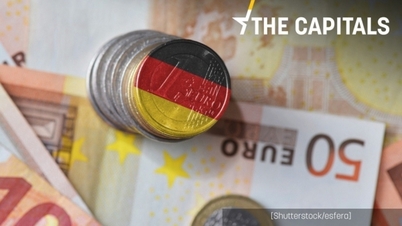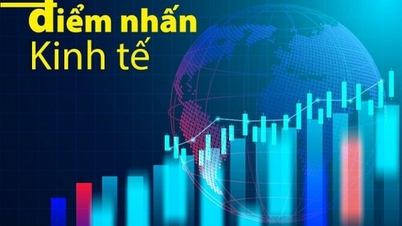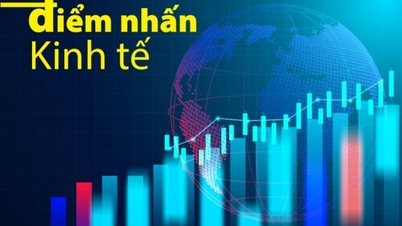 |
| Inflation has severely damaged the German economy, with consumers spending less on items like food and clothing. The image shows a street in Stralsund, Germany, during a time when many people were shopping. (Source: Getty) |
Inflation has severely damaged the German economy, with consumers spending less on items like food and clothing. Worse still, the economic outlook for the coming months doesn't look much brighter.
Recently, the German Federal Statistical Office (Destatis) released figures showing that the German economy contracted slightly in the first quarter of 2023 compared to the previous quarter. According to Destatis President Ruth Brand, Gross Domestic Product (GDP) decreased by 0.3% in the first quarter of 2023. Along with a 0.5% decrease in the fourth quarter of 2022, the German economy has recorded two consecutive quarters of negative growth and has officially entered a technical recession.
Economist Carsten Brzeski of ING said: “After several statistical adjustments for prices and seasonal effects, the German economy is inevitably in a technical recession. Positive factors such as warm winter weather, a recovery in industrial activity following the reopening of the Chinese market and the easing of supply chains… are not enough to pull this leading economy out of danger.”
The impact of inflation led households to spend less on food, beverages, clothing, shoes, and furniture compared to the previous quarter. New car sales also declined, possibly partly due to the government ending subsidy programs at the end of 2022.
Along with weak demand for goods, government spending also decreased in the first three months of the year. According to the Ifo Economic Research Institute, the business climate index fell more than expected in May 2023, marking the first decline after six consecutive months of increases.
Meanwhile, according to a survey published by the German Banking Association (BdB), a majority of Germans are skeptical about the European Central Bank's (ECB) plan to establish a digital euro.
The survey results show that as many as 76% of Germans surveyed believe that the current euro payment options are completely sufficient and therefore there is no need for a digital euro. Only 21% believe that this digital currency would make payments easier.
Henriette Peucker, Deputy Managing Director of the BdB, warned that the ECB needs to clarify key issues such as what form the digital euro will take, what benefits it will bring to people, and what risks it will pose. A digital euro can only succeed if it is accepted and used by European citizens. As long as the benefits and risks remain unclear, the project to establish a European digital currency will not be effective, and consumers will continue to use the payment options they are familiar with and trust.
Source









































































































Comment (0)